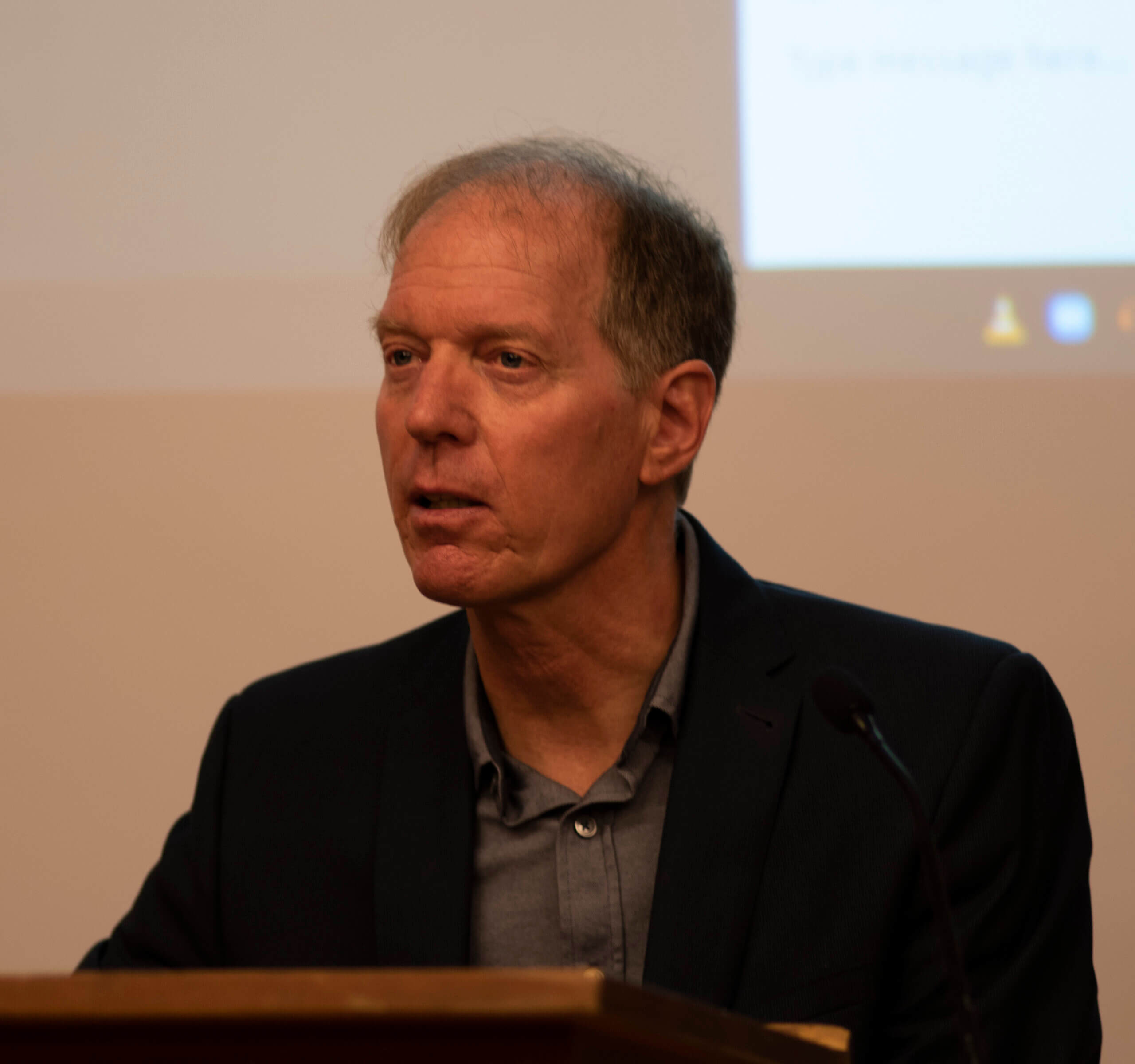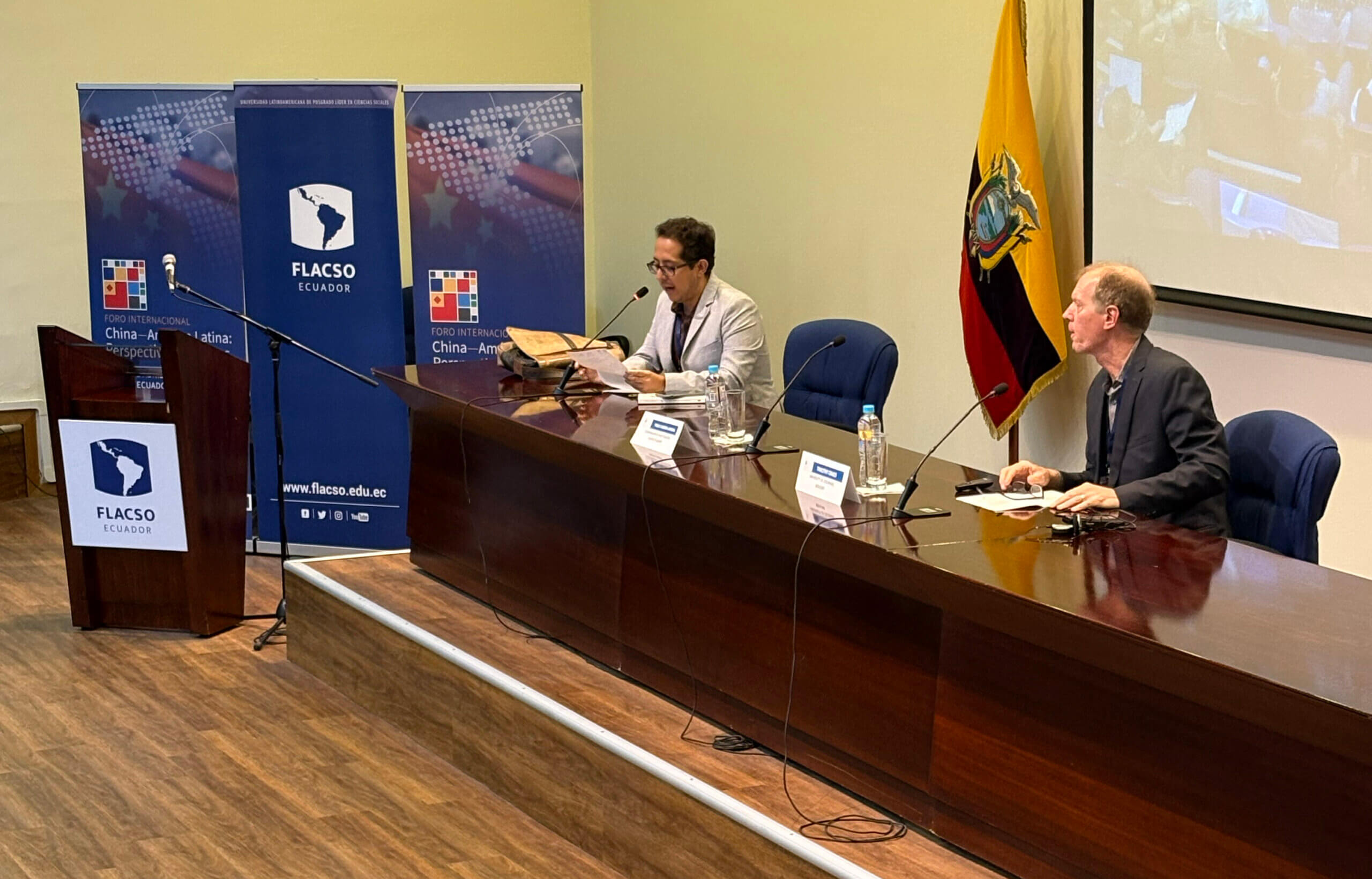Keynote Lecture | Timothy Oakes
The first keynote lecture of the Foro Internacional China – América Latina was delivered by Timothy Oakes, professor at the University of Colorado Boulder and former director of the Colorado Center for Asian Studies. His presentation, titled “Global China and Infrastructure Power: The Technopolitics of the ‘China Model’ of Development,” offered a critical perspective on China’s role as a global development actor through the lens of infrastructural power.
Oakes began by discussing China’s growing commitment to global expansion and the construction of a “Global China.” He emphasized that his interest lay not in detailing what China is doing, but in examining how China introduces new dynamics into the global order by doing things differently. While he acknowledged the usefulness of the Belt and Road Initiative (BRI) in understanding China’s international reach, he argued that this framework is both limited and problematic for grasping the full complexity of China’s global projection.
As an alternative, Oakes proposed an analytical approach focused on “infrastructure power” — a form of state power materialized through socio-technical configurations such as dams, highways, power grids, digital technologies, and ecological environments. This power not only reshapes domestic space, but also extends beyond China’s borders. According to Oakes, it is a technopolitical power co-constituted by infrastructures themselves, whose operating logics often produce unintended, contradictory, and even counterproductive outcomes for Beijing’s strategic goals.
To engage with this perspective, Oakes introduced the concept of “infrastructural thinking” — a way of understanding how infrastructure shapes social, economic, political, and institutional formations. This approach was central to the China Made research project, which he directed from 2018 to 2023 with the support of The Henry Luce Foundation. The project explores specific cases of Chinese infrastructure initiatives and their local implications, offering a transnational and critical analysis of the Chinese development model.Oakes concluded by emphasizing that infrastructure power represents a new form of state power — one that not only redefines governance in China but also reshapes urban landscapes and power relations in the territories where China operates as a development actor. This line of inquiry informs his forthcoming book, Living in Nuclear Asia, to be published in 2026 by the University of Toronto Press.
Speaker:

Timothy Oakes. University of Colorado Boulder
Country: United States
Ponencia: “Global China and Infrastructure Power: The Technopolitics of the ‘China Model’ of Development”
Moderator: Pablo Cabrera Barona

